#Igbo AfroBeat
Explore tagged Tumblr posts
Video
youtube
Chiké & Mohbad - Egwu (Official Video)
#youtube#Chiké & Mohbad - Egwu#naija#ng#music dance#igbo#igbo culture#music#dance#dance challenge#afrobeats#Chiké & Mohbad#Egwu chike & Mohbad#Egwu
8 notes
·
View notes
Text
youtube
#folklore#folk tales#fairy tales#african folklore#african fashion#african princess#afrobeats#bedtime stories#african spirituality#mythology#yoruba#igbos#igbo culture#igboland#west african#Youtube
2 notes
·
View notes
Text
HOLD FAST
LAST LAST
I NEED IGBO AND SHAYO
SHAYOOOOOOOO
6 notes
·
View notes
Text
accidently put my mother onto Afro-Gospel from the motherland and now i have unleashed a gremlin. ancestors activated pray for me pls
#for legal and cultural reasons this is partially a joke but fr. ancestors activated genuinely#i am letting all of my Naija mutuals know that when i put my afrobeats playlist on and i get a song in the tracklist that's in#full Igbo or Yoruba i act up. i act up that shit gets unleashed#heard Flavour's Levels as someone's ringtone the other day in public and i had to physically restrain myself from getting up#and starting some shit that i could not finish. alas
0 notes
Text
Flavour ft. Oskido, Olodum - Let’s Dance
Lagos, Nigeria — September 6, 2024 — The highly anticipated single “Let’s Dance” by Nigerian Afrobeat star Flavour, featuring South African music icon Oskido and the legendary Brazilian drumming ensemble Olodum, is now available. Taken from the One Drum EP, this track is set to become a global dance anthem, uniting listeners with its infectious rhythm and vibrant energy. Produced by Oskido and…
#Afrobeats#Flavour ft. Oskido#Flavour ft. Oskido- Let’s Dance#Igbo-highlife#Lagos#marimba#Nigeria#Olodum - Let’s Dance#rumba#samba
0 notes
Text
Darkovibes Blends Afrobeat And Highlife In New Single 'Bend Your Knees'"
Get ready to groove to the latest single from Ghanaian singer Darkovibes! His brand new track, ‘Bend Your Knees’ (Igbo), is now available on all major streaming platforms. Darkovibes, known for his soulful voice and captivating lyrics, has once again delivered a catchy and upbeat tune that’s sure to get you moving. ‘Bend Your Knees’ is an infectious blend of Afrobeat and Highlife rhythms, with a…
0 notes
Text
JAIYE 💿 - OUT NOW ON ALL PLATFORMS 💙










#A.I.#AIOFLAGOS#JAIYE#EP#MUSIC#AFROBEATS#AFROSOUNDS#AFROBEATS MUSIC#TGIF#IGBO (TAKEOFF)#BLUES RECORDS#BLUES RECORDINGS#LOSTONES ‘93
1 note
·
View note
Text
Marvel Studios: Voices Rising - The Music Of Wakanda Forever [Series]
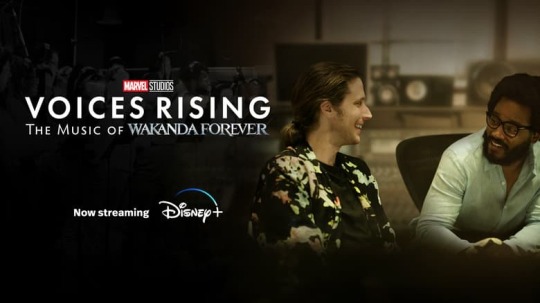
Episode #1: "Nigeria: Past is Present" [available on Disney +] [w/ time stamps to follow along]
- - - - - - - - - - - - - - - - - - -
▻ "Soundtrack's like this just don't happen anymore, with the high percentage of the songs that are embedded in the movie, and to this level of cultural specificity." - Ryan Coogler [Director] [0:00]
▻ "Here you have a story that intertwines people [Wakandans & Talokanil] of beautiful, rich ethnicities. What do you do with that as a composer? You use it!” - Letitia Wright [Princess Shuri] [0:14]
▻ We learn that Ryan Coogler and Ludwig Göransson first started off as friends, meeting one another at a film school [USC]. They then hit it off from their joint love of Swedish music. "They make magic together, and they seem to just pick up where the other has left off. They just have this seamless way of getting in each other's heads and hearts, and it ends up creating such incredible music.” - Lupita Nyong'o [Nakia] [1:51]
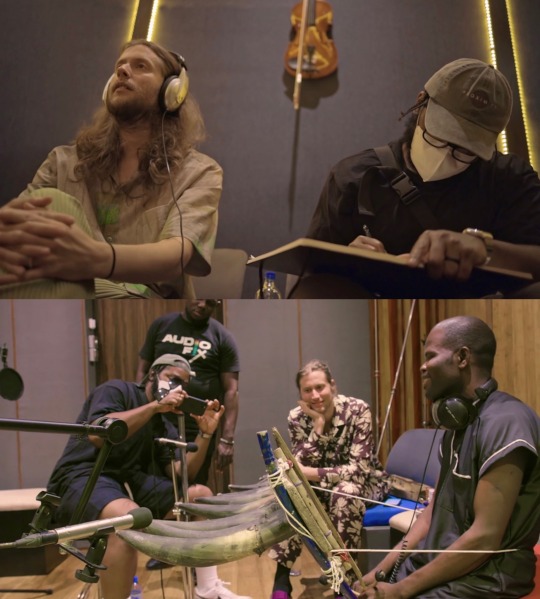
▻ The first Black Panther soundtrack is heavily inspired by Chadwick Boseman's Black Panther and his overall character. After his passing, they had to go back to square one. "I couldn't really imagine what the movie [soundtrack] would feel or look like without Chadwick in it. So, I'm basically going into this experience starting from scratch." - Ludwig Göransson [Composer] [2:42]
▻ They [Ryan and Ludwig] chose to go to Nigeria, Lagos to recruit artists and composers, it being a major hotspot for music in the world currently. "What Lagos is to music right now is what London was to music in its heyday. What New York was to hip-hop in the 90's. I genuinely believe the most exciting music in the world is being made in Lagos." - Seni Saraki [Music Consultant] [3:16]
▻ "Ludwig came to Lagos, because he, as a creative, understands the need to feed off of the energy of a particular place." - Fireboy DML [Artist] [4:04]
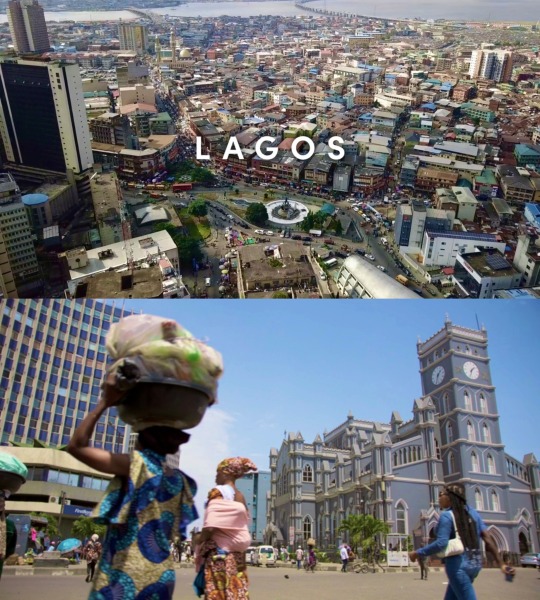
▻ There were a huge mixture of both contemporary artists [ie. singers, rappers, etc] and traditional artists [ie. musicians, instrumentalists for the score such as, but not limited to: Jedalo Percussion Ensemble, Fusion Nigeria] coming together to create this soundtrack. Instruments such as, but not limited to, the: sato drum, sakara drum, iyaálù bata, omele bata, kakaki horn, ojà flute, goje were all used on the traditional side. "Everyday we had different sessions with musicians that would come from different tribes from the Igbo, from the Hausa, from Yoruba and they would have their own instruments and different types of set of drums." - Ludwig Göransson [Composer] [5:57] Ryan and Ludwig are seen workshopping ideas of scenes and where musical segments may exist in the movie during these musical sessions [7:28]
▻ "He [Ludwig] and Ryan had been talking about it for years. ‘Let's write songs just for this film.’ There's no licensed tracks." - Monica Sonand [Score Supervisor] [9:39]
▻ “The generation that I'm in right now is speaking Afrobeats. We are all doing our own things individually, but as a unit together, we are pushing the culture. This is Afrobeats. This is Niger. This is Lagos. We're taking that old culture with us to the world." - Fireboy DML [Artist] [10:48] His song “Coming back for you" was used towards the end of the movie in the scene where Shuri is shown planting the heart-shaped herb [12:15]
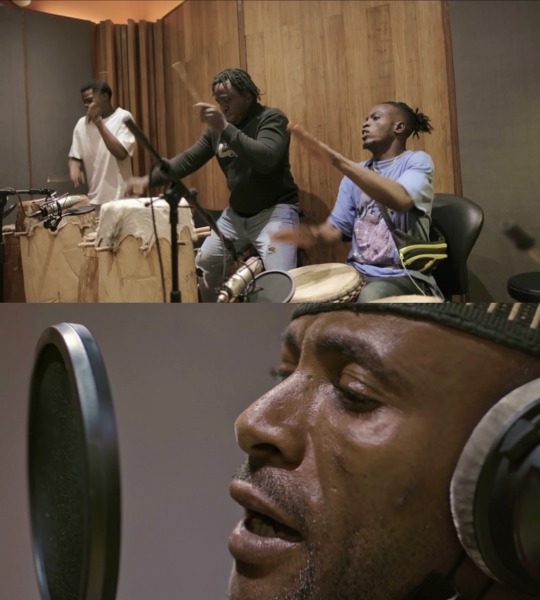
▻ Ryan and Ludwig wanted to have artists who sang in Xhosa [the language of the Wakandans] so they did their research and flew out artists from South Africa to Nigeria to meet with them. The music style “Amapiano” had the sound that they were looking for, which plays on most South African radio. "It's so unique and it comes out of the club scene there [South Africa] and it makes you want to dance. What I love about that music [Amapiano] is that it feels futuristic to me." - Ludwig Göransson [Composer] [15:05]
▻ Ryan, Ludwig and artist Bloody Civilian are shown brainstorming Bloody’s beats pack she made for them, discussing where her track may exist. She showed them her song “How to kill a man. “I was very nervous, but the environment felt safe and everyone's creativity was just going. It didn't really feel like work at some point." - Bloody Civilian [Artist + Producer] [23:04] Her final track in the movie “Wake up" ft Rema is about "pushing yourself regardless of the things that try to pull you back." - Bloody Civilian [Artist + Producer] [24:33]
▻ Some of the African producers involved were ecstatic to have representation of a variety of African artists and sounds on this Marvel movie and it’s soundtrack. "I think the album sounds like Wakanda!" - Osarumen Osamuyi [Music Producer] [25:28]
▻ "I've been able to travel here [Nigeria] with Ryan, one of my closest friends. Doing something like this together where we can share this experience has been such a blessing." - Ludwig Göransson [Composer] [25:52] "It was really important for us [Ludwig and him] to come to West Africa. Myself being African-American, a lot of my heritage is from here like most African-Americans. The biggest take away for me is the personal connection that I have myself. I'm constantly looking at people saying ‘that person looks like my cousin, that person looks like my friend, that person looks like my brother.' That experience is one that's very different from being a black man that was born and raised in a predominantly white country. Folks born on the continent often take for granted to just walk down the street and everybody looks like them. That wasn't my truth. That wasn’t my reality. It's a very strange experience to fly for thousands of miles and land somewhere you've never been, but it feels like home. There's a beauty to that, but also a sadness that comes with it.” - Ryan Coogler [Director] [26:06]
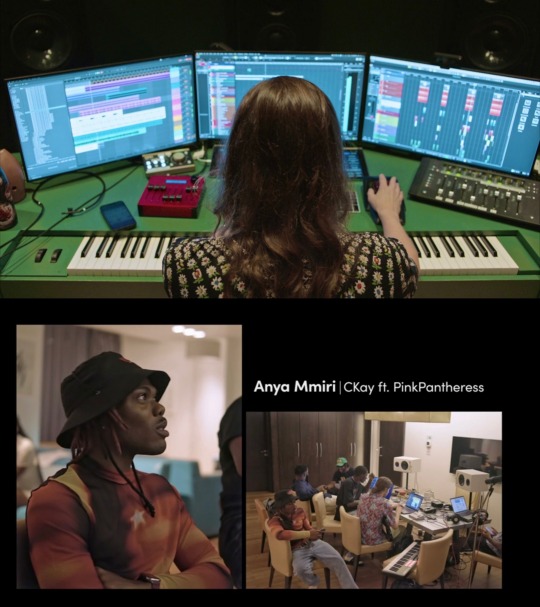
- - - - - - - - - - - - - - - - - - -
Soundtrack: [tracks referenced in this episode]
ʀɪʜᴀɴɴᴀ: ʟɪғᴛ ᴍᴇ ᴜᴘ / ʙᴜʀɴᴀ ʙᴏʏ: ᴀʟᴏɴᴇ / ғᴏᴜᴅᴇᴏ̨ᴜsʜ + ʟᴜᴅᴡɪɢ ɢᴏ̈ʀᴀɴssᴏɴ: ᴄᴏɴ ʟᴀ ʙʀɪsᴀ / ᴛᴇᴍs: ɴᴏ ᴡᴏᴍᴀɴ ɴᴏ ᴄʀʏ / ᴀᴅɴ ᴍᴀʏᴀ ᴄᴏʟᴇᴄᴛɪᴠᴏ + ᴘᴀᴛ ʙᴏʏ: ʟᴀᴀʏʟɪ’ ᴋᴜxᴀ’ᴀɴᴏ’ᴏɴᴇ / ғɪʀᴇʙᴏʏ ᴅᴍʟ: ᴄᴏᴍɪɴɢ ʙᴀᴄᴋ ғᴏʀ ʏᴏᴜ / ʙʟᴜᴇ ʀᴏᴊᴏ: ɪɴғʀᴀᴍᴜɴᴅᴏ / ʀɪʜᴀɴɴᴀ: ʙᴏʀɴ ᴀɢᴀɪɴ / ᴛᴏʙᴇ ɴᴡɪɢᴡᴇ + ғᴀᴛ ɴᴡɪɢᴡᴇ: ᴛʜᴇʏ ᴡᴀɴᴛ ɪᴛ, ʙᴜᴛ ɴᴏ / ᴅʙɴ ɢᴏɢᴏ + sɪɴᴏ ᴍsᴏʟᴏ: ʟᴏᴠᴇ & ʟᴏʏᴀʟᴛʏ [ʙᴇʟɪᴇᴠᴇ] / sɴᴏᴡ ᴛʜᴀ ᴘʀᴏᴅᴜᴄᴛ + ᴇ-40: ʟᴀ ᴠɪᴅᴀ / ᴀᴍᴀᴀʀᴀᴇ: ᴀ ʙᴏᴅʏ, ᴀ ᴄᴏғғɪɴ / ᴠɪᴠɪʀ ᴏ̨ᴜɪɴᴛᴀɴᴀ: ᴀ́ʀʙᴏʟᴇs ʙᴀᴊᴏ ᴇʟ ᴍᴀʀ / sᴛᴏʀᴍᴢʏ: ɪɴᴛᴇʀʟᴜᴅᴇ / ᴏɢ ᴅᴀʏᴠ + ғᴜᴛᴜʀᴇ: ʟɪᴍᴏɴᴄᴇʟʟᴏ / ᴄᴋᴀʏ + ᴘɪɴᴋᴘᴀɴᴛʜᴇʀᴇss: ᴀɴʏᴀ ᴍᴍɪʀɪ / ʙʟᴏᴏᴅʏ ᴄɪᴠɪʟɪᴀɴ + ʀᴇᴍᴀ: ᴡᴀᴋᴇ ᴜᴘ / ᴀʟᴇᴍᴀ́ɴ + ʀᴇᴍᴀ: ᴘᴀɴᴛᴇʀᴀ / ᴅʙɴ ɢᴏɢᴏ + sɪɴᴏ ᴍsᴏʟᴏ: ᴊᴇʟᴇ / ᴄᴀʟʟᴇ x ᴠɪᴅᴀ + ғᴏᴜᴅᴇᴏ̨ᴜsʜ: ɴᴏ ᴅɪɢᴀs ᴍɪ ɴᴏᴍʙʀᴇ / ɢᴜᴀᴅᴀʟᴜᴘᴇ ᴅᴇ ᴊᴇsᴜ́s ᴄʜᴀɴ ᴘᴏᴏᴛ: ᴍɪ ᴘᴜᴇʙʟᴏ
Score: [tracks referenced in this episode]
ʟᴜᴅᴡɪɢ ɢᴏ̈ʀᴀɴssᴏɴ: ᴡᴀᴋᴀɴᴅᴀ ғᴏʀᴇᴠᴇʀ / ʟᴜᴅᴡɪɢ ɢᴏ̈ʀᴀɴssᴏɴ: ᴛ’ᴄʜᴀʟʟᴀ / ʟᴜᴅᴡɪɢ ɢᴏ̈ʀᴀɴssᴏɴ: ʏɪʙᴀᴍʙᴇ! / ʟᴜᴅᴡɪɢ ɢᴏ̈ʀᴀɴssᴏɴ: ɴᴀᴍᴏʀ / ʟᴜᴅᴡɪɢ ɢᴏ̈ʀᴀɴssᴏɴ + ʙᴀᴀʙᴀ ᴍᴀᴀʟ: ᴡᴇʟᴄᴏᴍᴇ ʜᴏᴍᴇ / ʟᴜᴅᴡɪɢ ɢᴏ̈ʀᴀɴssᴏɴ + ʙᴜsɪsᴡᴀ: ᴡᴇ ᴋɴᴏᴡ ᴡʜᴀᴛ ʏᴏᴜ ᴡʜɪsᴘᴇʀ / ʟᴜᴅᴡɪɢ ɢᴏ̈ʀᴀɴssᴏɴ + ᴊᴏʀᴊᴀ sᴍɪᴛʜ: ʜᴇ ᴡᴀsɴ’ᴛ ᴛʜᴇʀᴇ / ʟᴜᴅᴡɪɢ ɢᴏ̈ʀᴀɴssᴏɴ + ᴠɪᴠɪʀ ᴏ̨ᴜɪɴᴛᴀɴᴀ: sɪʀᴇɴs / ʟᴜᴅᴡɪɢ ɢᴏ̈ʀᴀɴssᴏɴ: ɴᴀᴍᴏʀ’s ᴛʜʀᴏɴᴇ / ʟᴜᴅᴡɪɢ ɢᴏ̈ʀᴀɴssᴏɴ: ʏᴜᴄᴀᴛᴀ́ɴ / ᴠɪᴠɪʀ ᴏ̨ᴜɪɴᴛᴀɴᴀ: ᴀ́ʀʙᴏʟᴇs ʙᴀᴊᴏ ᴇʟ ᴍᴀʀ [ғɪʟᴍ ᴠᴇʀsɪᴏɴ] / ғᴏᴜᴅᴇᴏ̨ᴜsʜ + ʟᴜᴅᴡɪɢ ɢᴏ̈ʀᴀɴssᴏɴ: ᴄᴏɴ ʟᴀ ʙʀɪsᴀ [ғɪʟᴍ ᴠᴇʀsɪᴏɴ]
Episodes: 1 2 3
#marvel studios voices rising#ryan coogler#ludwig göransson#wakanda forever#black panther#marvel assembled#movie soundtrack#this is for my people who don’t have disney +#and for the folks who just want a summary of the eps#and for my fellow musical nerds like me lol#oscars#tenoch huerta#letitia wright#angela bassett#danai gurira#dominique thorne#lupita nyong'o#winston duke#michael b jordan#michaela coel#alex livinalli#florence kasumba#con la brisa#rihanna#burna boy#tems
34 notes
·
View notes
Text
INTERNATIONAL WOMEN’S DAY: THE WOMEN IN NIGERIAN MUSIC
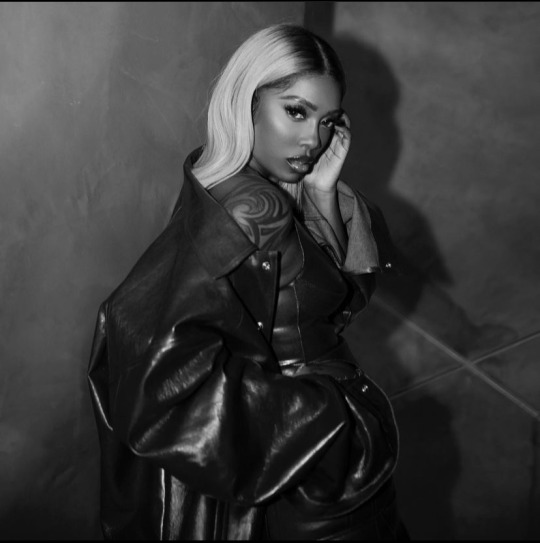
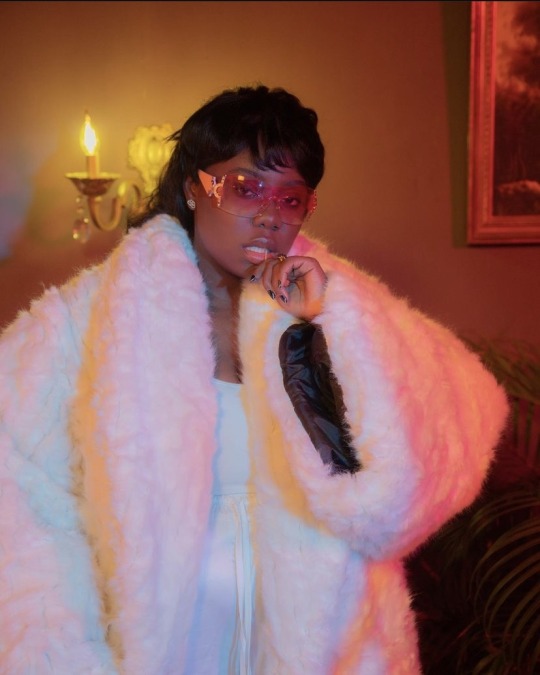
Nigerian music’s history is beautifully storied, and like every great story has had heroes pop up at different times, each handing the baton of Nigerian culture from one generation to the next and laying a small piece of the success it enjoys today. When magnifying glasses are placed on Nigeria's music with the intention of highlighting its most significant contributors, it is very common for our women to get left out. The reasons for this oversight—the relative scarcity of female acts in comparison to male counterparts—is no excuse. If anything, the women who have made their fair share of efforts to shape our music deserve a bigger spotlight, for they had to overcome the more prominent barriers to get there, barriers placed by a patriarchal society and increase the further back you go in our history. Barriers that have not been completely cleared even today.
With today's women breaking and setting records across gender lines, the International Women's Day of 2023 presents a poignant opportunity to document the strides our women make in modern music, while highlighting in retrospect the talented, underreported women who came before.
While Fuji music and its lesser-known affiliate, Apala, were dominating the local scene in the '70s and bringing to their creators like Wasiu Ayinde Marshall, Ayinde Barrister and Ayinde Kollington national fame, another Yoruba-Islamic genre, Waka, was traditionally performed by female artists. It was drawn from Alasatu, a Yoruba genre with strong Islamic and Arabic influences, and Alhaja Batile Alake fashioned Waka out of it, allowing the genre to escape the confines of religion and tribe. Another prominent female singer, Alhaja Salawa Abeni, built on this, bringing Waka to national platforms and beyond.
The Ladiju sisters (or twins) are a pair of female artists whose contributions to Nigerian music remain timeless. Their debut album, Iya Mi Jowo, was released in 1969, and they went on to release 5 more albums that were ahead of their time in content and sound, as they drew from a wide pool of influences that included foreign sounds like Jazz and Rock as well as the indigenous like Waka and Fela Kuti’s Afrobeat.
Across the Niger, the women of South Eastern Nigeria were making similarly impressive strides of their own. Nelly Uchendu is most famous for her Love Nwantiti album of 1976, especially the eponymous lead single. She was not the only Igbo songstress to be renowned for her singing prowess. The “Elegant Stallion”, Onyeka Onwenu excelled even beyond writing and performing music, as she took up roles as an actress, worked as a broadcaster and even delved into politics as part of a storied career, putting to bed question marks placed over a woman’s capability. Christy Essien-Igbokwe chose to put her inspiring messages of woman empowerment and Nigerian advocacy into song, and these female artists performing at the top level helped imprint in the next generation that chauvinistic gender roles were a thing of the past.
Modern Nigerian (Pop) music, or Afrobeats, has featured a larger share of women at the highest echelons at every stage, and it must be acknowledged that they have all but caught up in terms of individual star power.
Weird MC was one of a few artists to first nationalise American hip-hop spirit. Her 1996 album, Simply Weird, and its standout track, "Allen Avenue", helped dress up rap music in the Nigerian clothing it decks today. 2006's "Ijoya" took her popularity a lot further, and it remains a timeless classic to this day. Asa's musical inclination was similarly unconventional, but it lay at the other end of the spectrum, as her R&B/Soul-powered eponymous debut album announced the entry of a new star. With it she strengthened her image abroad, ensuring that she enjoys today an audience beyond the shores of Nigeria. Thankfully her talent came with longevity, and her most recent album, released in 2022, still serenades Nigerians like her first effort did 15 years before.
Subsequent acts would hone in on conventional Nigerian pop, which they coloured with their honeyed vocals. Omawunmi made her debut with 2009's Wonder Woman, fresh off becoming a runner-up on Nigerian Idol where she had launched a prototype of her career. With singles like "In The Music", "Bottom Belle" and "If You Ask Me", her star appeal was never in doubt, and with her most recent album Love Deep High Life only two years old, her diminished popularity should not be taken for hibernation. Waje, another singer blessed with incredible vocals, emerged around the same time, first making a guest appearance on Psquare's "Do Me" in 2008 before songs like "So Inspired" and "For A Minute" served as a proper entry into the scene. Just like Omawunmi, she remains an active member of Nigerian music's ranks, as her latest album, "The Misfit", debuted last year.
At the turn of the decade, Tiwa Savage moved in from the UK, pitching her tent with Don Jazzy's Mavins Music after she had spent the last few years providing back up vocals to icons like George Michael and Mary J. Blige. Her adaptation did not take long, as her superb debut album, Once Upon A Time,—with songs like "Kele Kele Love", "Eminado" and "Without My Heart"—showcased equally her supple songwriting and her silky, yet powerful delivery. She is one of a few acts in Nigerian music, across gender lines, who have ruled the last decade in near-constant influence, and with her ability to tie effortlessly into new and trendy music (see: "Loaded" with Asake and " Who's your guy" remix with Spyro), there is still a lot more to come from the songstress.
Seyi Shay is another act that shares a common history of finding her feet in music in the United Kingdom. She moved to Nigeria at about the same time, and her first steps here—"Irawo" and its Vector-assisted remix; the Loving Your Way EP; and her debut album, Seyi Or Shay—were very well received by the Nigerian audience. Her most recent release, 2021's Big Girl, came with positive acclaim, especially its titular lead single. Yemi Alade's "Johnny" brought with it an impact that every artist desires for their breakout single, and to this day its video continues to accumulate astronomical numbers as more and more people from around the world discover the self-styled Mama Africa. To strengthen her claim to this title, she has released music in a variety of African languages, allowing her to tap into diverse cultures and strengthen her continental profile.
Simi, the woman with the voice that soothes sometimes and strikes other times, also made her debut in the half decade between 2010 and 2014, a time period that supplied female acts in buckets, some of whom still enjoy a continued presence at Nigeria's top flight. She debuted in 2014 with "Tiff", doubling down on this entrance with "Jamb Question" in 2015 as she checked 'playful storytelling' as part of her skillset. With each album since then she has gone on to provide an inspiration to any female acts entering the industry. Sisters Niniola and Teni share little more than a surname, but their varied musical paths have individually brought them to the top flight of Nigerian music's roster. Niniola was one of Nigeria's first adopters of House music, though some articles on the subject will disrespectfully leave her out altogether. Her accolades speak for her though, and she earned a Grammy songwriting certificate via 2017's Maradona, which Beyoncé sampled for her Lion King: The Gift album. Her most recent EP, Lagos to Jozi, builds on her vibrancy and innovation, weaving Nigerian slang into South African beats for a dance-ready project.
Her sister, Teni, is the more exuberant artist off-stage, and her music is a more straightforward affair involving Nigerian Pop rhythms and love-strung writing. Clearly a vigorous romantic, 2018's "Case" outlined the lengths she was willing to go to for love, while 2019's "Power Rangers" imagined herself as a superhero coming to her lover's rescue. She also has an inspiring side, as revealed by "Uyo Meyo", and a balance of these two has driven her to recognition in Nigerian music.
The biggest strides taken for Nigerian women in music, especially on the international stage, would come on the wings of one of its newest entrants. 27 year old Tems has achieved in four short years what would be an impressive resumé for an artist's entire career—a Grammy win, an Oscar nomination and collaborations with some of the biggest artists in the world. All this is made that much more impressive by the fact that she is still yet to release a debut album, and when it arrives later this year it is expected to push her career to unprecedented heights.
Behind Tems are a band of other female acts. Young, talented and eager to break down what is left of Nigerian music's gender tilt and level rhe playing field. Ayra Starr's exploits in Mavin records have produced an EP and an album, and with them she's made a name for females and teenagers in Nigerian music. While this is only a summary of the very many women that have graced Nigerian music for years, it is hoped that with other young acts like Fave, Liya, Guchi and Bloody Civilian making their way up the ladder, next years International Women's Day will feature an even lengthier list than this.
This article was written by Afrobeats City Contributor Ezema Patrick - @ezemapatrick (Twitter)
Afrobeats City doesn’t own the right to the images - image source: Instagram
#afrobeats#afrobeats city#afrobeats london#african music#uk afrobeats#nigeria#nigerian music#iwd#iwd23#music#tiwa savage#international women's month#article#music article
24 notes
·
View notes
Text
Music Entertainment
What's Entertainment Music
Entertainment music refers to music that is created primarily for the purpose of entertaining people. This type of music is often popular and easily accessible, and it is designed to be enjoyable and engaging for a wide range of listeners. Entertainment music can take many forms, including pop, rock, hip-hop, country, and electronic dance music, among others. It is often characterized by catchy melodies, lyrics that are easy to remember, and upbeat rhythms that encourage listeners to dance or sing along.
Entertainment music is often produced by professional musicians and songwriters who work in the music industry. These artists may perform live concerts, release albums, and create music videos in order to promote their work and reach a wider audience. Overall, entertainment music is a popular form of artistic expression that brings joy and pleasure to many people around the world.
Naija songs refer to music produced in Nigeria, a country with a vibrant and diverse music scene. Nigeria is home to a rich array of musical genres such as Afrobeat, Highlife, Juju, Fuji, and Gospel music, among others. Naija songs are known for their high energy, catchy beats, and lyrics that reflect the cultural, social, and political experiences of Nigerians. Naija songs have gained global recognition in recent years, with Nigerian artists such as Wizkid, Davido, Burna Boy, and Tiwa Savage topping international charts and collaborating with international musicians. The popularity of Naija songs is also attributed to the rise of Afrobeats, a genre that fuses traditional African rhythms with contemporary Western pop music.
Naija songs often have a strong focus on dance, with many songs featuring infectious beats that are sure to get people moving. The lyrics of Naija songs often address issues such as love, heartbreak, politics, and social justice, and are delivered in a variety of languages, including English, Yoruba, Igbo, and Pidgin English. Overall, Naija songs represent a vibrant and exciting aspect of Nigerian culture that continues to evolve and capture the attention of music lovers around the world.
Nigerian music industry continues to produce a plethora of exciting and diverse music. In recent times, there has been a surge of new and talented artists, who have brought fresh sounds and unique styles to the industry. Naija Latest Songs Some of the latest Naija songs have been breaking new ground and setting trends in the music industry. These songs span various genres, from Afrobeat to R&B, and often feature collaborations between local and international artists.
Naija Afrobeat Songs Naija Afrobeats songs are characterized by their infectious beats, catchy melodies, and danceable rhythms. They often feature lyrics that address social and political issues, as well as love and relationships. The songs are usually performed in a variety of languages, including English, Pidgin English, Yoruba, and Igbo.
Naija Highlife Songs Naija Highlife songs are a popular genre of music that originated from Ghana and Nigeria in the early 20th century. Highlife music is characterized by its fusion of African rhythms with Western jazz and swing music. Over the years, Highlife music has evolved and diversified, with different sub-genres emerging in various parts of West Africa.
2 notes
·
View notes
Video
youtube
Egwu chike & Mohbad lyrics #afrobeats #newmusic #jamestochvisuals #fyp
0 notes
Text
Darkovibes – Bend Your Knees (Igbo)
Darkovibes – Bend Your Knees (Igbo)
Darkovibes – Bend Your Knees (Igbo) Bend Your Knees by Darkovibes Ghanaian Afropop/Afrobeat singer and songwriter, DarkoVibes is back again with this brand new free mp3 song titled “Bend Your Knees (Igbo)“. Check it out below and kindly share it with your friends and families. Liked this song, Also Download this Mp3: Fox Beatz – I Want Take a listen and download this Ghana mp3 song and don’t…
0 notes
Text
10 Fakta Menarik Tentang Nigeria
Populasi Terbesar di Afrika Nigeria adalah negara dengan populasi terbesar di Afrika, dengan lebih dari 200 juta penduduk. Hal ini menjadikannya salah satu negara terpadat di dunia.
Ekonomi Terbesar di Afrika Nigeria memiliki ekonomi terbesar di Afrika berdasarkan Produk Domestik Bruto (PDB). Negara ini kaya akan sumber daya alam, terutama minyak bumi, yang menjadi sumber utama pendapatan negara.
Keanekaragaman Budaya Nigeria dikenal dengan keanekaragaman budayanya yang luar biasa, memiliki lebih dari 250 kelompok etnis. Tiga kelompok etnis terbesar adalah Hausa, Yoruba, dan Igbo.
Bahasa Resmi Bahasa resmi Nigeria adalah Bahasa Inggris, yang digunakan untuk administrasi pemerintahan, pendidikan, dan bisnis. Namun, ada lebih dari 500 bahasa lokal yang digunakan sehari-hari.
Lagos - Kota Terbesar di Afrika Barat Lagos, meskipun bukan ibu kota, adalah kota terbesar di Nigeria dan salah satu kota terbesar di Afrika Barat. Kota ini adalah pusat ekonomi dan komersial negara.
Pusat Industri Film Nollywood Nigeria memiliki industri film yang sangat produktif, dikenal sebagai Nollywood. Nollywood adalah salah satu produsen film terbesar di dunia, menghasilkan ribuan film setiap tahunnya.
Warisan Sejarah Benin Kerajaan Benin di Nigeria terkenal dengan artefak-artefak perunggu yang luar biasa, yang berasal dari abad ke-13. Artefak-artefak ini terkenal di seluruh dunia dan banyak ditemukan di museum-museum besar.
Sepak Bola yang Populer Sepak bola adalah olahraga yang paling populer di Nigeria. Tim nasional sepak bola Nigeria, dikenal sebagai Super Eagles, telah memenangkan Piala Afrika beberapa kali dan berpartisipasi dalam banyak Piala Dunia.
Keanekaragaman Alam Nigeria memiliki keanekaragaman alam yang luar biasa, mulai dari hutan hujan tropis di selatan hingga savana di utara. Taman Nasional Yankari dan Taman Nasional Cross River adalah beberapa tempat wisata alam yang terkenal.
Musik Afrobeat Nigeria adalah tempat lahirnya musik Afrobeat, genre musik yang dipopulerkan oleh Fela Kuti. Afrobeat adalah campuran antara musik tradisional Afrika, jazz, highlife, funk, dan chanted vocals.
Sumber: faktarandom.com
0 notes
Link
0 notes
Text
New Audio: Partisan Records to Release Idris Elba-Curated Sixth Box Set Reissue Compilation of Fela Kuti and Shares Funky "Stalemate"
New Audio: Partisan Records to Release Idris Elba-Curated Sixth Box Set Reissue Compilation of Fela Kuti and Shares Funky "Stalemate" @felakuti @partisanrecords @idriselba @brykitch
Fela Kuti (1938-1997) was a pioneering Nigerian multi-instrumentalist, arranger, producer and an eccentric, political radical, outlaw and originator of Afrobeat, whose musical and sociopolitical legacy spans decades and genres — with his work drawing from jazz, pop, rock, funk, soul, traditional Yoruba and Igbo music and Nigerian highlife among others. While Kuti is a beloved icon in his native…
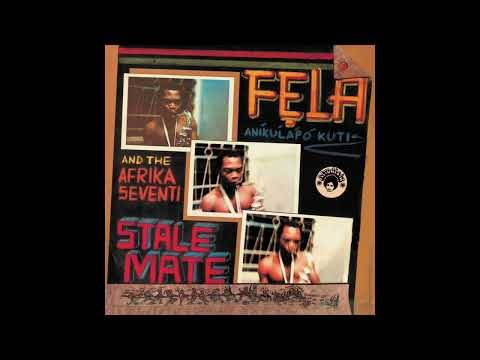
View On WordPress
#African Diaspora Music#African music#afrobeat#Fela Kuti#Fela Kuti Box Set 6#Fela Kuti Stalemate LP#New Audio#New Single#News/Announcements#Single Review#Single Review: Fela Kuti Statement#Single Review: Stalemate#Stalemate
0 notes
Text
Phyno Do I Instrumental
Listen and download Phyno do i instrumental mp3 free beat. This igbo afrobeat instrumental is now available for free download for anyone who needs it. Are you an igbo rapper looking for cool afrobeat cultural instrumental to rap with, then this freebeat is all you need. This phyno type beat is dope. https://instrumentals.com.ng/wp-content/uploads/2023/10/phyno-do-i-instrumental.mp3 Download…

View On WordPress
0 notes